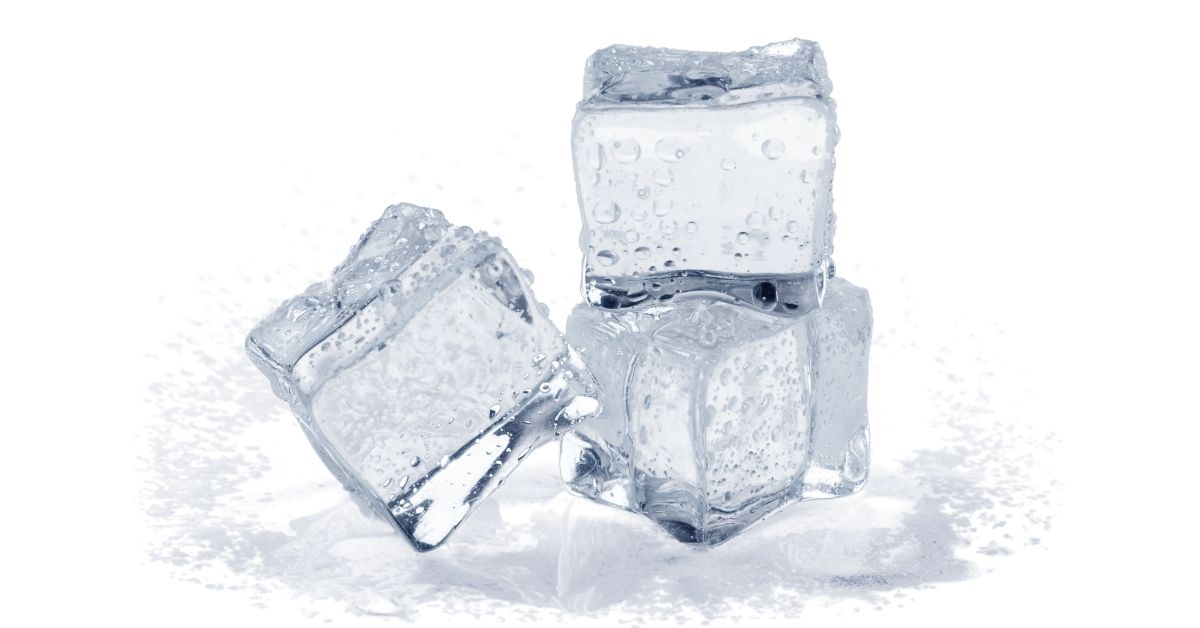It takes about 3-4 hours to freeze a standard tray of ice cubes in a home freezer set to 0°F (-18°C).
How Long To Freeze Ice
Freezing water into ice seems simple enough, but have you ever stopped to think about how long it actually takes? It’s not an instant process, and several factors can make it happen faster or slower.
What Impacts How Long It Takes to Freeze Ice
Let’s take a look at the key things that determine how quickly your water will turn into those refreshing ice cubes:
- Temperature of Your Freezer: It probably goes without saying, but the colder your freezer is, the faster your water will freeze. Most home freezers are set to about 0°F (-18°C).
- Size and Shape of Ice Cubes: Smaller cubes freeze way faster than large, chunky ice blocks. That’s because they have a larger surface area in contact with the cold air.
- Container Material: Plastic ice cube trays aren’t the best heat conductors. Metal or silicone trays will do a better job of drawing the heat out of the water.
- Starting Temperature of the Water: This one might surprise you, but hot water can actually freeze faster than cold water under certain conditions. It’s called the Mpemba effect, and it’s still a bit of a scientific puzzle.
So, How Long Does it Really Take?
In most home freezers, a standard plastic ice cube tray filled with room temperature water will take around 3 to 4 hours to freeze completely. However, this is just a general guideline – times can vary.
How Can I Speed Up Freezing Time?
If you need ice in a hurry, there are a few tricks you can try:
- Use smaller ice cube trays: Smaller cubes equal faster freezing.
- Opt for a metal or silicone tray: They conduct heat better than plastic.
- Lower your freezer’s temperature: Just be careful not to go too low, or you risk affecting the quality of other frozen foods.
- Try the Mpemba effect: Fill the tray with hot (not boiling) water. It seems counterintuitive, but sometimes it works!
Table 1: Factors That Affect Freezing Time
| Factor | Impact | How to Optimize |
| Freezer Temperature | Colder = Faster | Set to 0°F (-18°C) or slightly lower |
| Ice Cube Size & Shape | Smaller, thinner cubes = Faster | Choose trays with various shapes and sizes |
| Container Material | Metal or silicone = Faster | Invest in a couple of non-plastic trays |
| Starting Water Temperature | Hotter water may freeze faster (Mpemba effect) | Experiment to see what works in your freezer |
Freezing Ice for Different Drinks
Not all ice is created equal! Here’s a quick guide to the best types of ice for your favorite beverages:
- Everyday Drinks: Standard ice cubes from your tray are perfect.
- Cocktails: Larger cubes melt more slowly, keeping your drink stronger for longer.
- Blended Drinks: Crushed ice is the king here.
Table 2: Types of Ice
| Ice Type | Best For… |
| Standard Ice Cubes | Everyday drinks, chilling cans and bottles |
| Large Cubes | Cocktails, whiskey on the rocks |
| Crushed Ice | Smoothies, margaritas, mint juleps |
Does the Amount of Water Affect How Long It Takes to Freeze?
Absolutely! It’s all about the volume. A small amount of water will freeze more quickly than a large amount. If you have an extra-large ice cube tray, expect those cubes to take longer to freeze than standard-sized ones.
Storing Your Ice
Once your ice is frozen, it’s important to store it properly to prevent it from taking on unwanted freezer odors or developing freezer burn. Here are a few tips:
- Transfer to an airtight container or bag: This helps keep odors out and reduces freezer burn.
- Don’t overfill the container: Leave a bit of space since ice expands slightly.
- Use your oldest ice first: Like other frozen foods, ice has a limited shelf life in the freezer.
Beyond the Basics: Cool Ice Experiments
Freezing water is surprisingly fascinating. Here are a few fun experiments you can try at home:
- The Mpemba Effect: We touched on this earlier. See for yourself if hot water freezes faster than cold.
- Supercooled Water: With careful preparation, you can cool water below its freezing point without it turning to ice. This creates a state known as supercooled water.
- Instant Ice: Using supercooled water, you can create ice crystals instantly! It’s quite a sight to see.
Table 3: Fun Ice Experiments
| Experiment | Description |
| The Mpemba Effect | Test whether hot water freezes faster than cold water under the right conditions. |
| Supercooled Water | Cool water below its freezing point without it solidifying. |
| Instant Ice | Use supercooled water to trigger instant ice crystal formation. |
Troubleshooting Ice Issues
Sometimes, things don’t go according to plan, even in the simple world of ice making. Here are some common problems and how to address them:
- Cloudy Ice: This usually happens when there are impurities in the water, such as dissolved minerals. Try using filtered water if cloudiness is a problem.
- Ice Sticking To Tray: A light coating of cooking spray on the tray before adding water can help release cubes more easily.
- Bad-Tasting Ice: Old ice can absorb freezer odors. Make sure to store ice properly and use it within a reasonable timeframe.
Conclusion- How Long To Freeze Ice?
So, how long does it take to freeze ice? While a standard tray of cubes will usually freeze in 3-4 hours, there are many factors that can speed up or slow down the process. The important thing is knowing the tricks so you can have ice ready whenever you need a refreshing drink!
